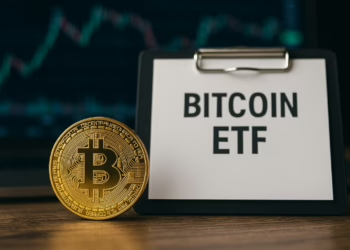The Central Bank of Nigeria has announced its intention to allow the existence of private stablecoins. Nigeria was one of the first countries to launch a central bank digital currency (CBDC), the e-naira.
According to a recently published document, the Central Bank of Nigeria is willing to develop a legal framework for possible stablecoin implementations. According to the document, a regulatory framework is required because stablecoins will likely succeed as a payment method in the country.
CBN stated:
“Stable Coin implementations are likely to be successful payment mechanisms. There is a need to develop a regulatory framework for such implementation that almost certainly will be used in Nigeria.”
The document also addresses the regulation of initial coin offerings (ICOs). It emphasizes how the lack of regulation in the sector has resulted in losses for investors.
The CBN sees potential in using ICOs as a new method for crowdfunding, peer-to-peer lending, and capital project raising. Therefore, a regulatory framework is also required if an ICO-based investment solution is adopted.
The CBN believes that ICOs if properly implemented and supported, could emerge as a new channel for attracting foreign direct investment (FDI) and raising capital.
CBN added:
“There is little appetite to adopt the current round of ICOs given their lack of regulation. However, given the role of ICOs as an asset class, there is potential for adopting the technology of ICOs as a new approach to fundraising for capital projects (in the wholesale market) or peer-to-peer lending or crowdfunding (for the retail market).”
The most recent documents on the payments system imply that the CBN’s stance toward privately issued digital currencies has shifted, even though the central bank has previously prohibited financial institutions from supporting cryptocurrency transactions.
On December 20, 2022, Nigeria accepted cryptocurrency as a legal form of investment capital.
When the Investments and Securities Act, 2007 (Amendment) Bill is approved and signed into law, the Securities and Exchange Commission will be able to recognize cryptocurrencies and other digital assets as investment capital.
The proposed bill will also outline the SEC and the Central Bank of Nigeria’s regulations for digital currency.
If you would like to read more news articles like this, visit DeFi Planet and follow us on Twitter, LinkedIn, Facebook, and Instagram.
“Take control of your crypto portfolio with MARKETS PRO, DeFi Planet’s suite of analytics tools.”




















